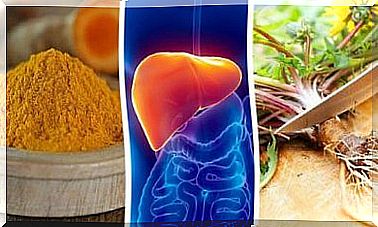6 Tips To Prevent A Heart Attack
Did you know that getting enough sleep and controlling your stress levels can prevent a heart attack?

Are there members in your family who have had a heart attack? And do you know how to prevent a heart attack? It is extremely important to take steps to prevent a heart attack. Because heart disease is one of the leading causes of death worldwide.
A heart attack occurs when one of the arteries that supplies oxygen to the heart becomes blocked. Fortunately, this problem is easy to avoid. However, lifestyle changes are required if the life you lead is not the healthiest.
We recommend that you “take heart” these tips:
1. Eat healthy

You should eat a balanced diet if you want to avoid a heart attack:
- Try to eliminate processed products from your diet and then replace them with fresh foods.
- Reduce your sugar and sweetener intake. If you’re craving something sweet, eat a piece of fruit instead.
- Avoid trans fats, like vegetable oils or margarine. Replace these with healthy fats like avocado, coconut oil, or unpasteurized butter.
- Provide your body with enough fluids and make sure you get enough water.
- Eat foods containing omega-3s, such as fatty fish, at least once a week. Alternatively, you can take a dietary supplement.
- Eat foods that are high in vitamins C, E, and beta-carotene. These nutrients protect the artery walls. They neutralize free radicals, slow down the wear and tear of the heart and lower bad cholesterol (LDL).
2. Exercise daily
You probably already know that exercise is important to your health, but also keep in mind that not all exercise will help your heart. The best way to prevent a heart attack is to do some intense exercise. These should not be more than 30 minutes a day.
To get the most out of your workouts, try to rest and take the time to properly rest between exercises. This will help support good cardiovascular health without overstraining your heart when you have heart problems.
3. Lower your salt intake to prevent a heart attack

People who consume a lot of salt increase their chances of developing heart disease or having a heart attack compared to those who eat a balanced diet.
- When there is too much sodium in the blood, the arteries narrow and the volume of fluid increases, making it larger in proportion to the size of the arteries.
- This in turn increases the pressure in the arteries, which can lead to a heart attack, stroke, or high blood pressure.
However, this does not mean that you should limit your consumption of salt completely. Because your body still needs it. We therefore recommend adding just a pinch of salt to your food. Also, be sure to avoid processed products as they are high in salt.
4. Take care of your gastrointestinal tract
You may think that what’s going on in your stomach has little to do with preventing a heart attack. However, this is not the case. The truth is, serious bowel problems like irritable bowel syndrome can transform your body so much that you can have a heart attack or stroke.
Daily intake of probiotics, as well as eating fermented foods, can prevent heart problems. Because you are promoting a healthy intestinal flora.
5. Get enough sleep

Getting enough sleep is essential for normal adrenaline and cortisol levels, which can help prevent heart attacks. Your night’s rest should include at least seven hours of restful sleep. You should also watch out for insomnia.
For example, snoring is not only annoying, it can also be fatal if it is sleep apnea. Because this sleep disorder negatively affects the body and can cause hypertension and heart disease.
Also, note that you should take an afternoon nap if you feel very tired during the day.
6. Meditate and practice yoga
When you meditate and practice yoga, your body and mind relax. At the same time, your energy changes, which improves blood flow and blood flow to the heart.
- When your body and mind are relaxed, your heart works better and this lowers the risk of a heart attack.
- Remember that stress affects your nervous system. So if you’re always upset or angry, the more likely you are to have a heart attack.
We recommend practicing yoga for about 20 minutes a day. Also, try to meditate either right after you get up or before you go to bed.
Granted, it can be difficult for you to keep your mind and body calm at first. But over time it gets easier and you gradually get used to it. And remember, these exercises can help prevent a heart attack.









